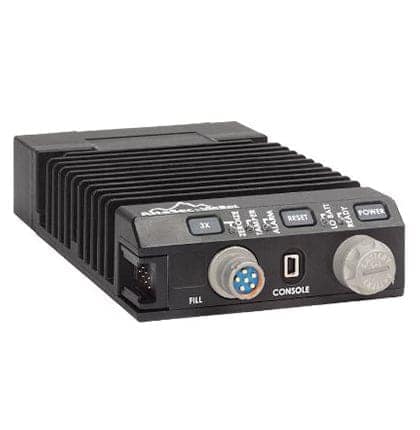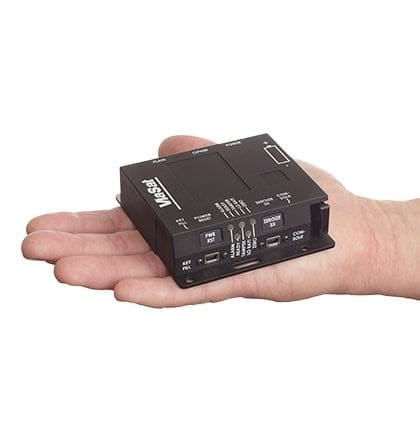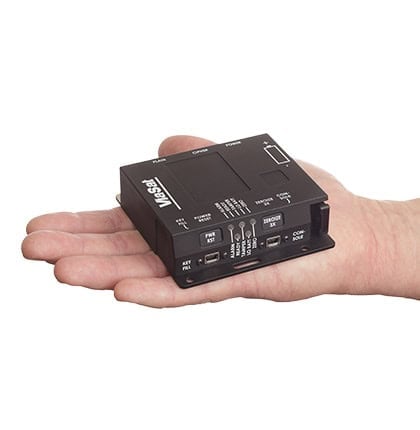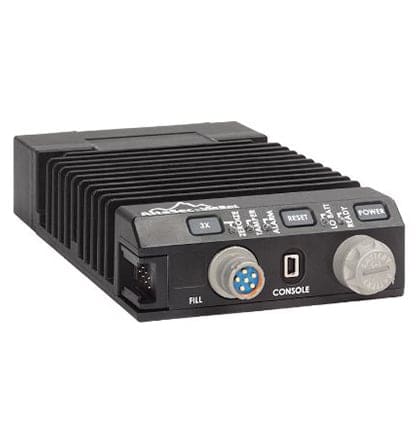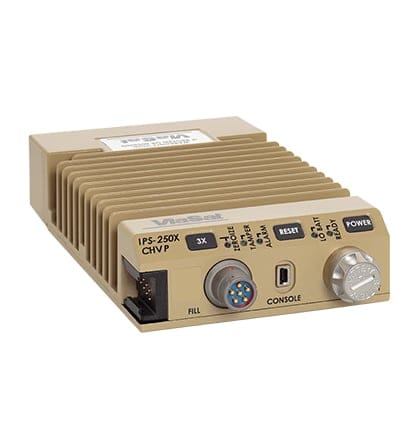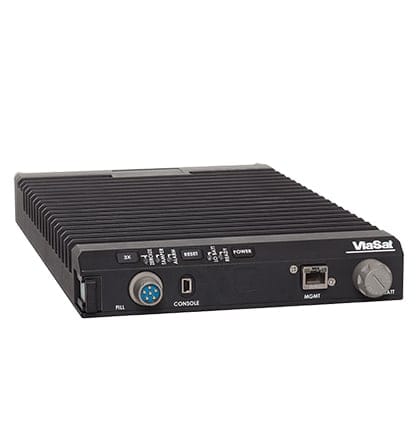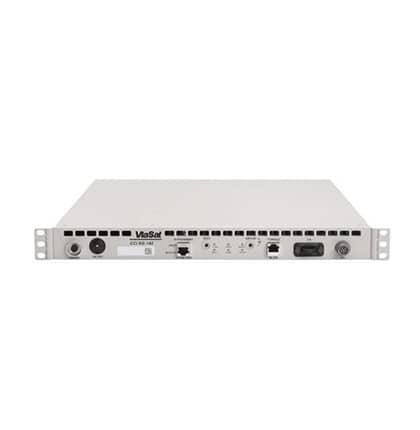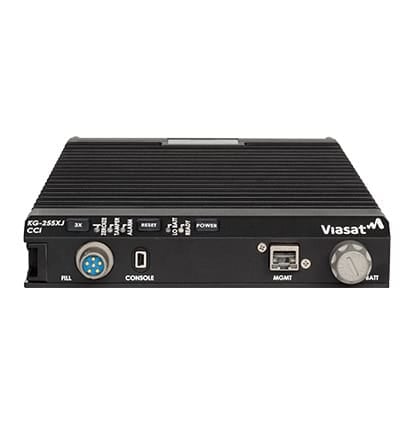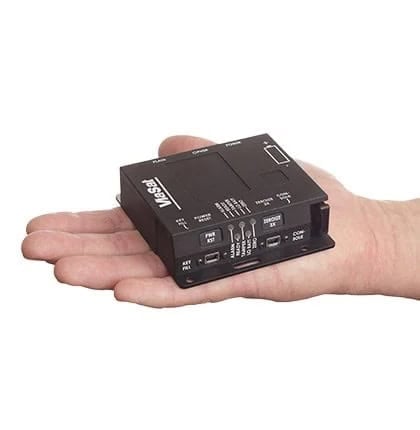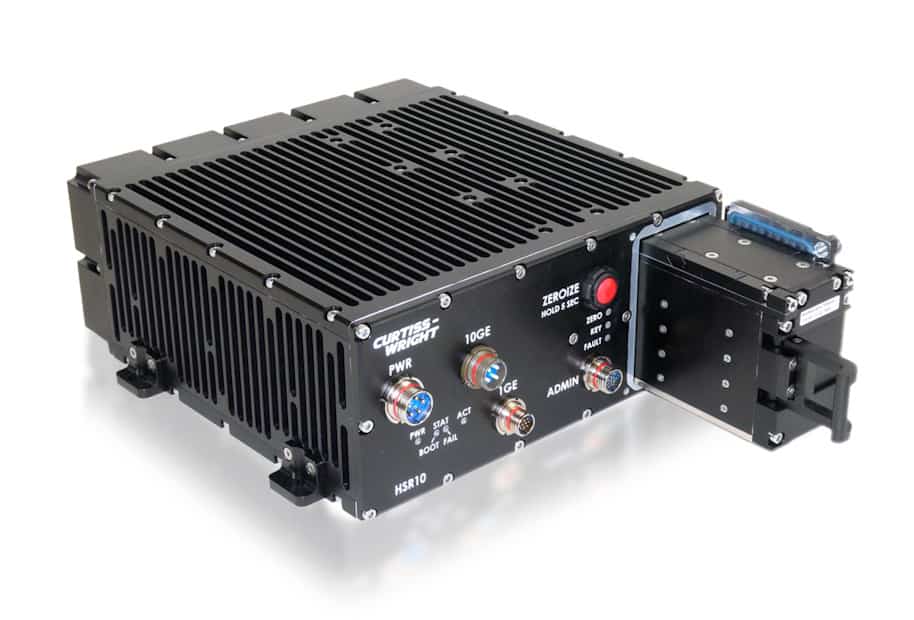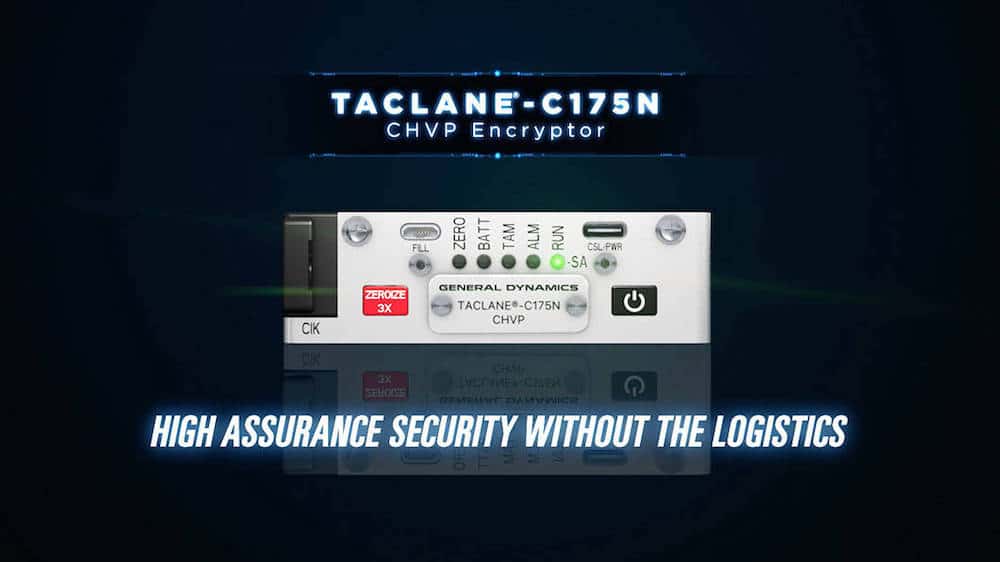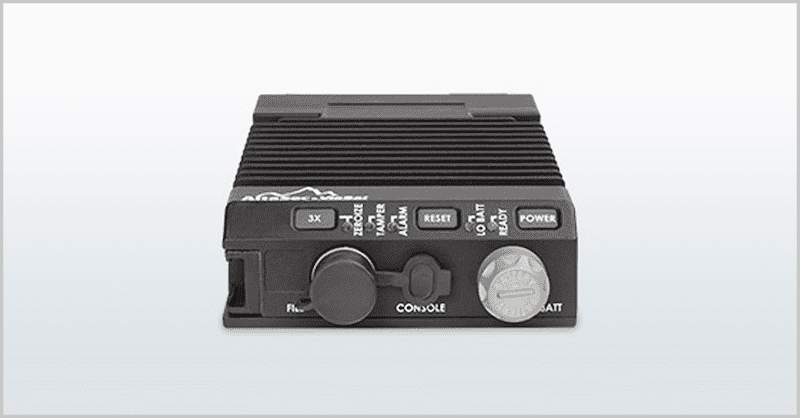Network Encryptors for Military and Defense Applications
In an increasingly digital battlespace, securing military communications is critical. Network encryptors are essential for protecting sensitive data, ensuring secure connectivity, and maintaining information integrity in challenging environments. From NSA Type 1 encryption to HAIPE-enabled solutions and Mode 5 IFF systems, these devices provide advanced cryptographic security for both tactical and strategic operations. This category explores cutting-edge encryption devices designed to meet the stringent requirements of modern defense operations.What are Network Encryptors?
Network encryptors are specialized devices used to protect the integrity and confidentiality of data transmitted over military and defense networks. These encryption solutions ensure secure communications across battlefield operations, command centers, and strategic networks. They employ advanced cryptographic protocols, such as NSA Type 1 encryption and HAIPE (High Assurance Internet Protocol Encryptor) standards, to safeguard classified information from cyber threats.
Network encryptors are designed to meet various military standards, including MIL-STD-810 for environmental durability. These devices provide secure connectivity for edge security operations, battlefield drones, and strategic communications. Additionally, encryptors support IFF Mode 5 (Identification Friend or Foe), ensuring the identification of friendly forces in combat zones.
Types of Network Encryptors
High Assurance Internet Protocol Encryptors (HAIPE)
HAIPE devices are a specific type of NSA-approved encryptor that provides secure IP communications. These encryptors support military operations requiring top-level security, including secure edge encryption and tactical communications. Rugged HAIPE encryptors ensure reliable performance in extreme environments and meet NSA Type 1 encryption standards.
Inline Network Encryptors (INE)
Inline network encryptors secure network traffic by encrypting data as it moves between devices. These devices are essential for protecting military connectivity and ensuring secure communication channels. Rugged INEs provide durability in harsh operational environments, supporting high-speed data transfers without compromising security.
IFF Mode 5 Encryptors
Mode 5 IFF encryptors provide advanced identification capabilities for military aircraft, ships, and ground units. These devices use encryption to securely identify friendly forces, reducing the risk of fratricide. Mode 5 systems, such as the Mark XIIA IFF encryptors, ensure secure and reliable identification in contested airspace and combat zones.
Applications of Network Encryptors in Defense
Network encryptors are vital in numerous defense and military scenarios:
- Secure Battlefield Communications: Ensure encrypted network traffic across ground units, drones, and command posts.
- Edge Security Solutions: Enable secure connectivity for edge devices operating in remote or contested environments.
- Tactical Data Links: Protect data exchanged between aircraft, ships, and ground forces using IFF Mode 5 and HAIPE encryption.
- Strategic Networks: Secure high-bandwidth communications between command centers and military bases.
- Military Drones and UAVs: Maintain encrypted communications for unmanned systems operating on secure networks.
Key Features of Military Network Encryptors
- NSA Type 1 Encryption: Meets the highest security standards for classified information.
- Rugged Design: Built to MIL-STD-810 standards for extreme environmental conditions.
- High-Speed Encryption: Ensures minimal latency and optimal network performance.
- Edge Encryption: Provides security for devices operating in forward-deployed environments.
- Compatibility with Existing Systems: Supports various military protocols and connectivity solutions.
- Controlled Cryptographic Item (CCI) Compliance: Ensures handling and usage meet strict military guidelines.
Choosing the Right Network Encryptor
Selecting the appropriate network encryptor depends on specific mission requirements and operational environments. Consider the following factors:
- Encryption Standards: Ensure compliance with NSA Type 1 or HAIPE encryption protocols.
- Network Performance: Choose encryptors that offer high-speed encryption for seamless data transfer.
- Environmental Durability: Opt for rugged encryptors designed for extreme conditions.
- Compatibility: Ensure the encryptor integrates with existing network encryption devices and military systems.
- Operational Requirements: For edge security, select devices optimized for forward-deployed and tactical environments.
Innovations in Network Encryption
As military operations grow increasingly digital and interconnected, the need for cutting-edge encryption solutions becomes more critical. Recent advancements in network encryption technology enhance the speed, security, and efficiency of communications in the field. These innovations address the evolving nature of cyber threats and the demands of modern warfare, offering improved cryptographic performance across various military applications.
Advanced Cryptographic Capabilities
Modern network encryptors are equipped with advanced cryptographic algorithms to counter increasingly sophisticated cyber threats. These innovations ensure that sensitive military data remains secure, even as adversaries employ more powerful techniques to compromise communications. Advanced cryptographic capabilities integrate multiple layers of security, reducing vulnerabilities and enhancing the protection of critical information. Many of these systems incorporate quantum-resistant algorithms to prepare for future threats from quantum computing, which could potentially compromise traditional encryption methods.
High-Speed Network Encryption
To meet the needs of data-intensive military operations, high-speed network encryption solutions have been developed. These devices can process and encrypt large volumes of data without causing delays or compromising network performance. High-speed encryption ensures that real-time communication between battlefield units, command centers, and intelligence operations remains seamless and efficient. This is particularly important for applications requiring live video feeds, large file transfers, and rapid data analysis.
Inline Network Encryption Hardware
Inline network encryption hardware is becoming more compact, efficient, and adaptable. These devices secure data as it travels through various nodes in the network, ensuring continuous encryption without disrupting the flow of information. The latest inline encryptors offer lower latency and higher throughput, making them ideal for use in real-time military communications. Their streamlined designs allow for easy integration with existing military infrastructure, reducing the need for extensive system overhauls while maintaining robust security.
Encrypted Secure Drone Networks
With the increased use of drones and UAVs in military operations, securing their communications has become paramount. Innovations in network encryption now offer specialized solutions for encrypted secure drone networks. These technologies ensure that data transmitted between drones and control stations remains protected from interception or tampering. Encrypted communications allow drones to operate safely and effectively in contested airspace, supporting reconnaissance, surveillance, and combat missions without compromising data integrity.
Quantum-Resistant Encryption Protocols
As quantum computing becomes a reality, the defense sector is proactively developing quantum-resistant encryption protocols. These new encryption methods are designed to withstand potential quantum-based attacks that could break conventional cryptographic algorithms. Quantum-resistant protocols ensure long-term data security for classified information and communications, protecting sensitive military operations against future threats. Defense agencies are now testing and integrating these protocols to maintain the security of their networks well into the future.
AI-Driven Encryption Solutions
Artificial Intelligence (AI) is being leveraged to enhance encryption processes in military networks. AI-driven encryption solutions can dynamically adjust encryption protocols based on real-time analysis of network conditions and potential threats. These intelligent systems can identify anomalies, detect intrusion attempts, and strengthen encryption in response to emerging risks. By automating parts of the encryption process, AI enhances the resilience and adaptability of secure communications, reducing the need for manual oversight and response times.
Edge Encryption for Tactical Operations
Edge encryption technology has evolved to meet the needs of forward-deployed forces and tactical operations. These solutions ensure secure communications at the network’s edge, where devices operate in challenging and often hostile environments. Modern edge encryptors are rugged, portable, and capable of maintaining secure connectivity under extreme conditions. This innovation supports troops on the front lines, enabling real-time, encrypted communication without relying on centralized infrastructure.
Secure Multi-Domain Integration
Innovations in network encryption now support multi-domain operations, enabling seamless and secure communication across land, sea, air, space, and cyberspace. Encryption solutions are being developed to integrate with different platforms and systems, ensuring that data flows securely between domains. This multi-domain integration enhances situational awareness and decision-making, allowing coordinated operations across various branches of the military.
Summary of Network Encryptors
Network encryptors play a critical role in modern defense operations, ensuring secure, reliable, and encrypted communications across military networks. From HAIPE-enabled devices to Mode 5 IFF encryptors, these solutions provide advanced cryptographic security for battlefield and strategic communications. As military technology evolves, network encryption methods continue to advance, offering improved performance, security, and reliability for defense forces worldwide.
Explore the latest innovations in network encryptors to ensure secure military connectivity and operational success.
Products (7)
Related Articles
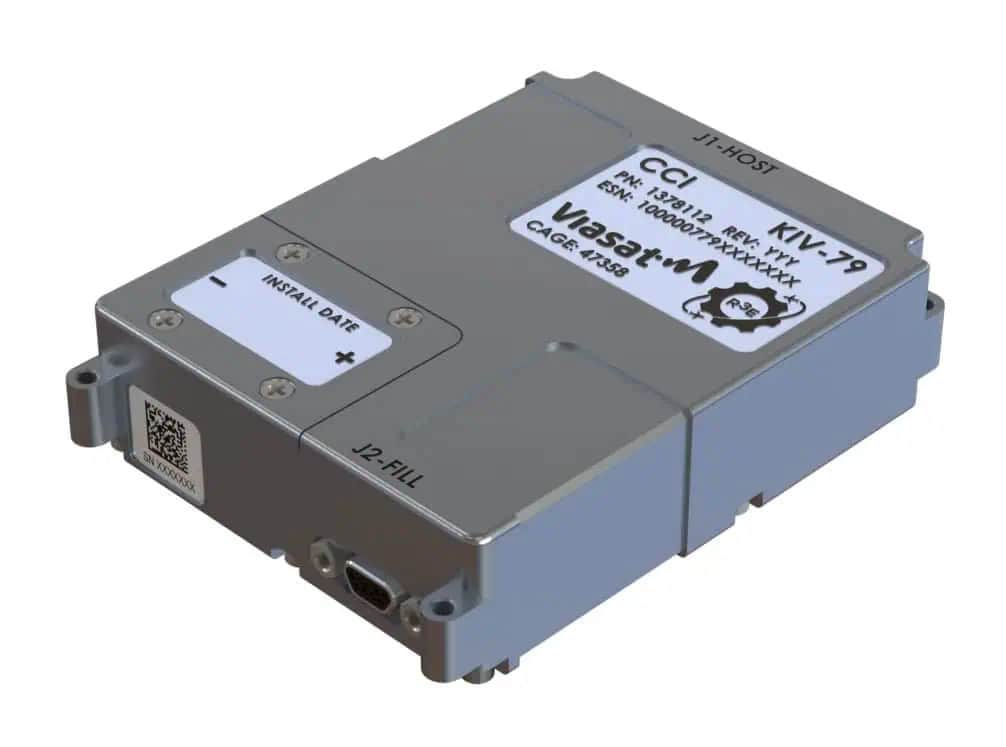
Cutting-Edge Encryption Solutions for Military & Government: Protection Against The Most Sophisticated Modern Cyber Threats




